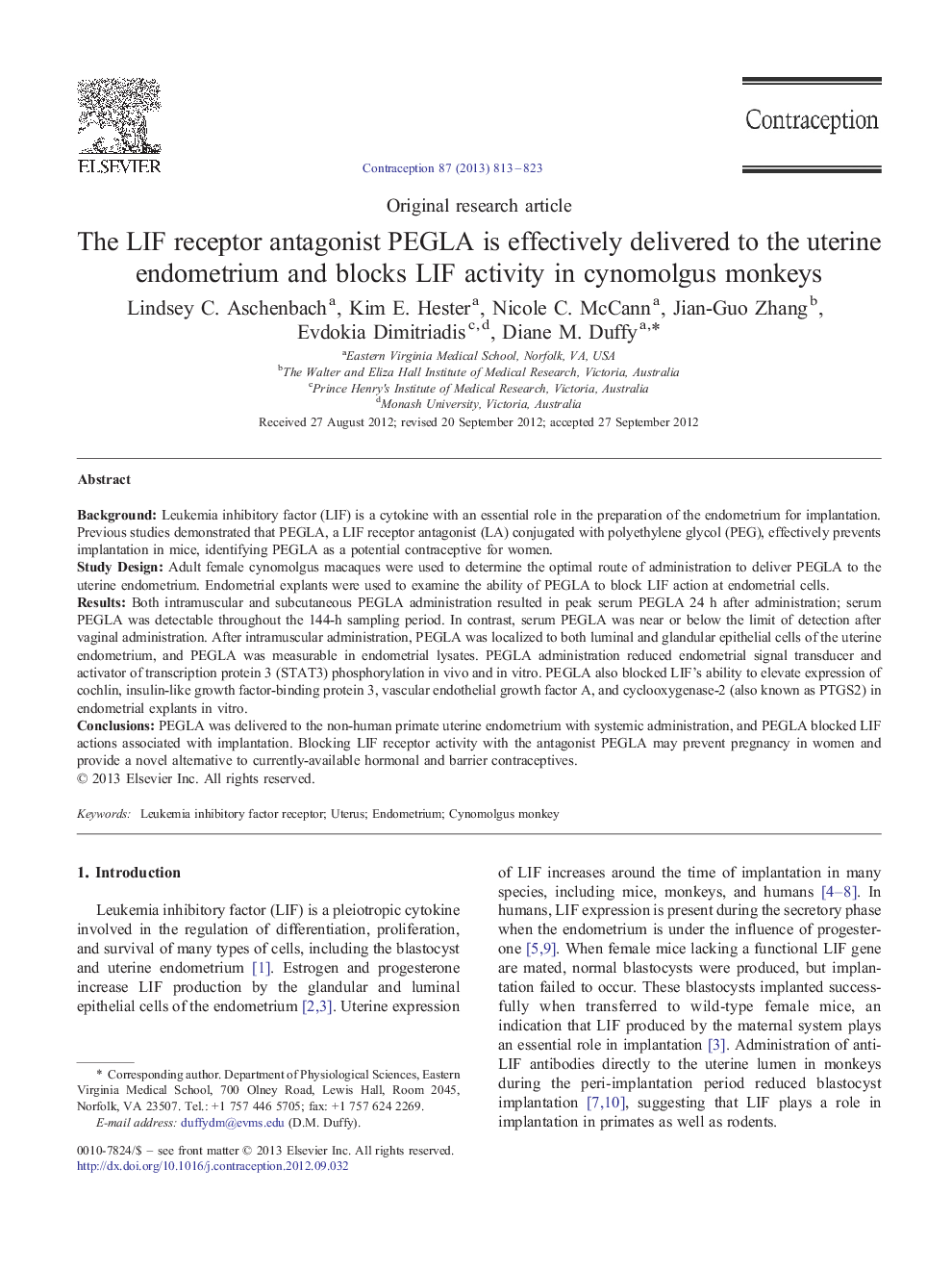| Article ID | Journal | Published Year | Pages | File Type |
|---|---|---|---|---|
| 3913671 | Contraception | 2013 | 11 Pages |
BackgroundLeukemia inhibitory factor (LIF) is a cytokine with an essential role in the preparation of the endometrium for implantation. Previous studies demonstrated that PEGLA, a LIF receptor antagonist (LA) conjugated with polyethylene glycol (PEG), effectively prevents implantation in mice, identifying PEGLA as a potential contraceptive for women.Study DesignAdult female cynomolgus macaques were used to determine the optimal route of administration to deliver PEGLA to the uterine endometrium. Endometrial explants were used to examine the ability of PEGLA to block LIF action at endometrial cells.ResultsBoth intramuscular and subcutaneous PEGLA administration resulted in peak serum PEGLA 24 h after administration; serum PEGLA was detectable throughout the 144-h sampling period. In contrast, serum PEGLA was near or below the limit of detection after vaginal administration. After intramuscular administration, PEGLA was localized to both luminal and glandular epithelial cells of the uterine endometrium, and PEGLA was measurable in endometrial lysates. PEGLA administration reduced endometrial signal transducer and activator of transcription protein 3 (STAT3) phosphorylation in vivo and in vitro. PEGLA also blocked LIF's ability to elevate expression of cochlin, insulin-like growth factor-binding protein 3, vascular endothelial growth factor A, and cyclooxygenase-2 (also known as PTGS2) in endometrial explants in vitro.ConclusionsPEGLA was delivered to the non-human primate uterine endometrium with systemic administration, and PEGLA blocked LIF actions associated with implantation. Blocking LIF receptor activity with the antagonist PEGLA may prevent pregnancy in women and provide a novel alternative to currently-available hormonal and barrier contraceptives.
